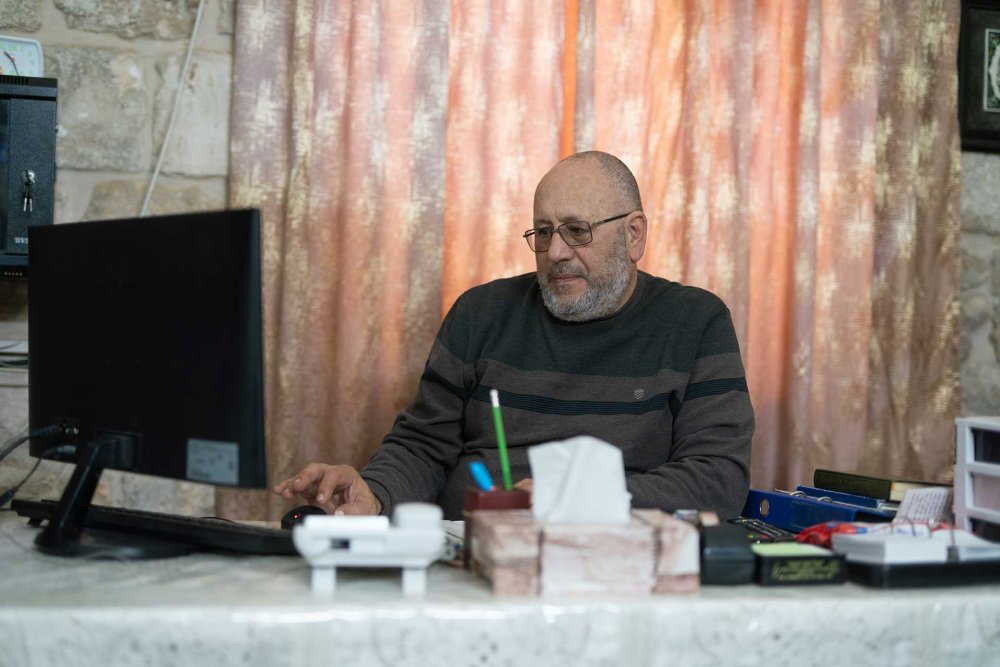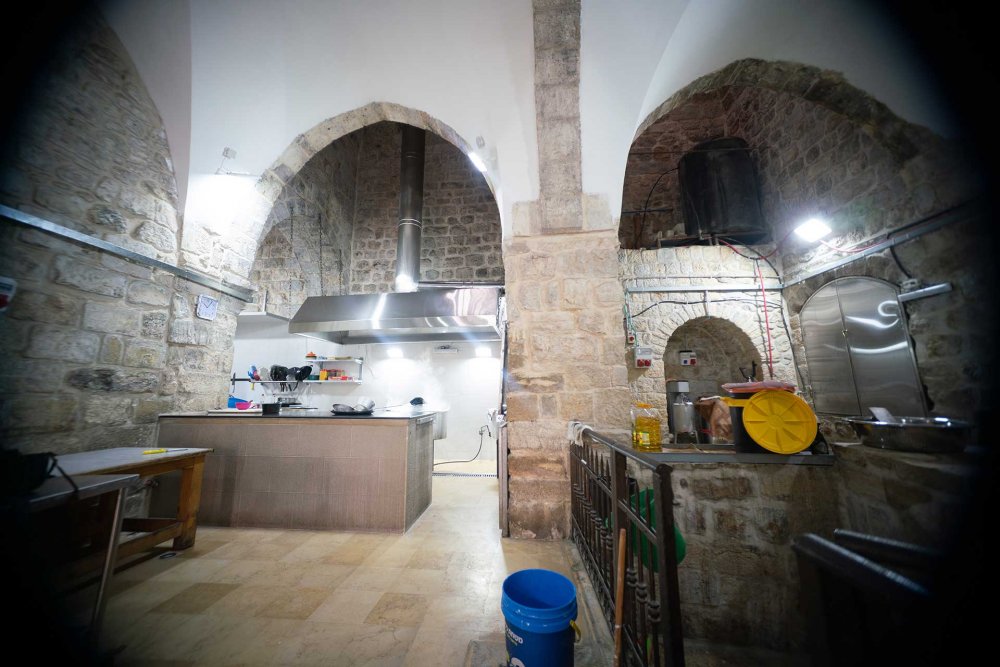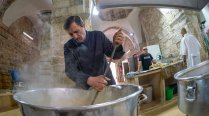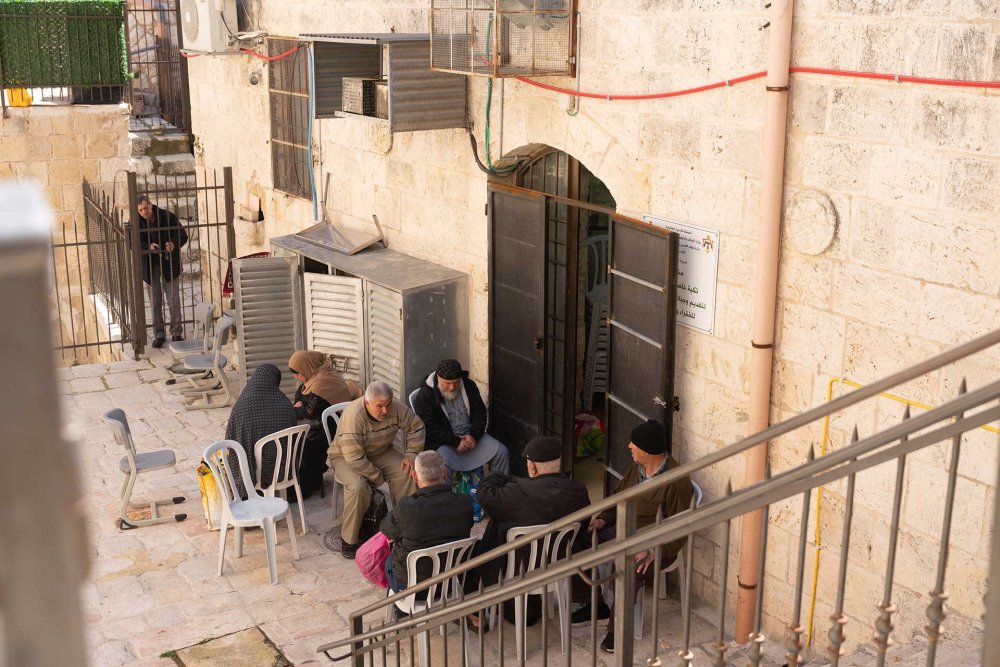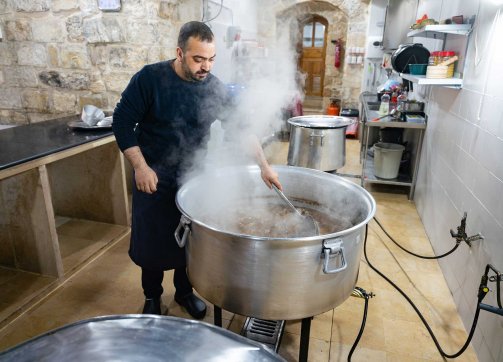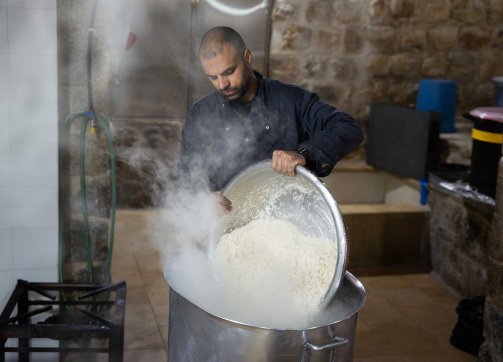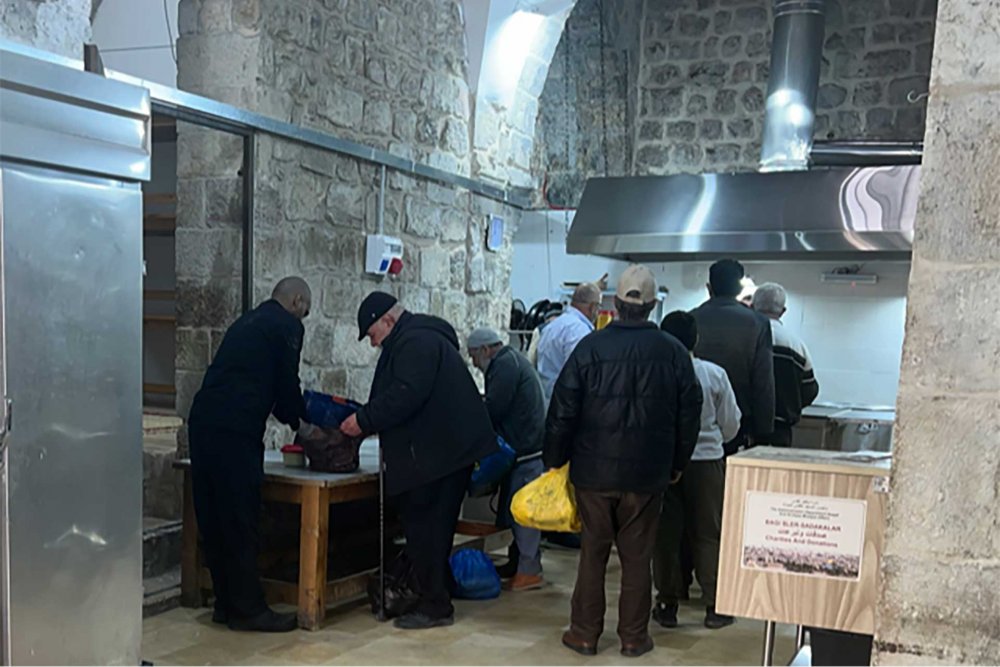Meet Bassam Abu Libdeh, director of the Takiyya Khaski Sultan (or the Public Kitchen of Khaski Sultan), in the heart of the Old City of Jerusalem and steps away from al-Aqsa Mosque. Bassam is keen to be the first to open the door of this public kitchen in the early dawn, because he knows that hundreds of families in the city depend on the kitchen, popularly referred to as takiyya, for their daily sustenance. Indeed, the kitchen is unusual in that it provides food for whole families, not just the individual who comes to pick up a share of the day’s dish.
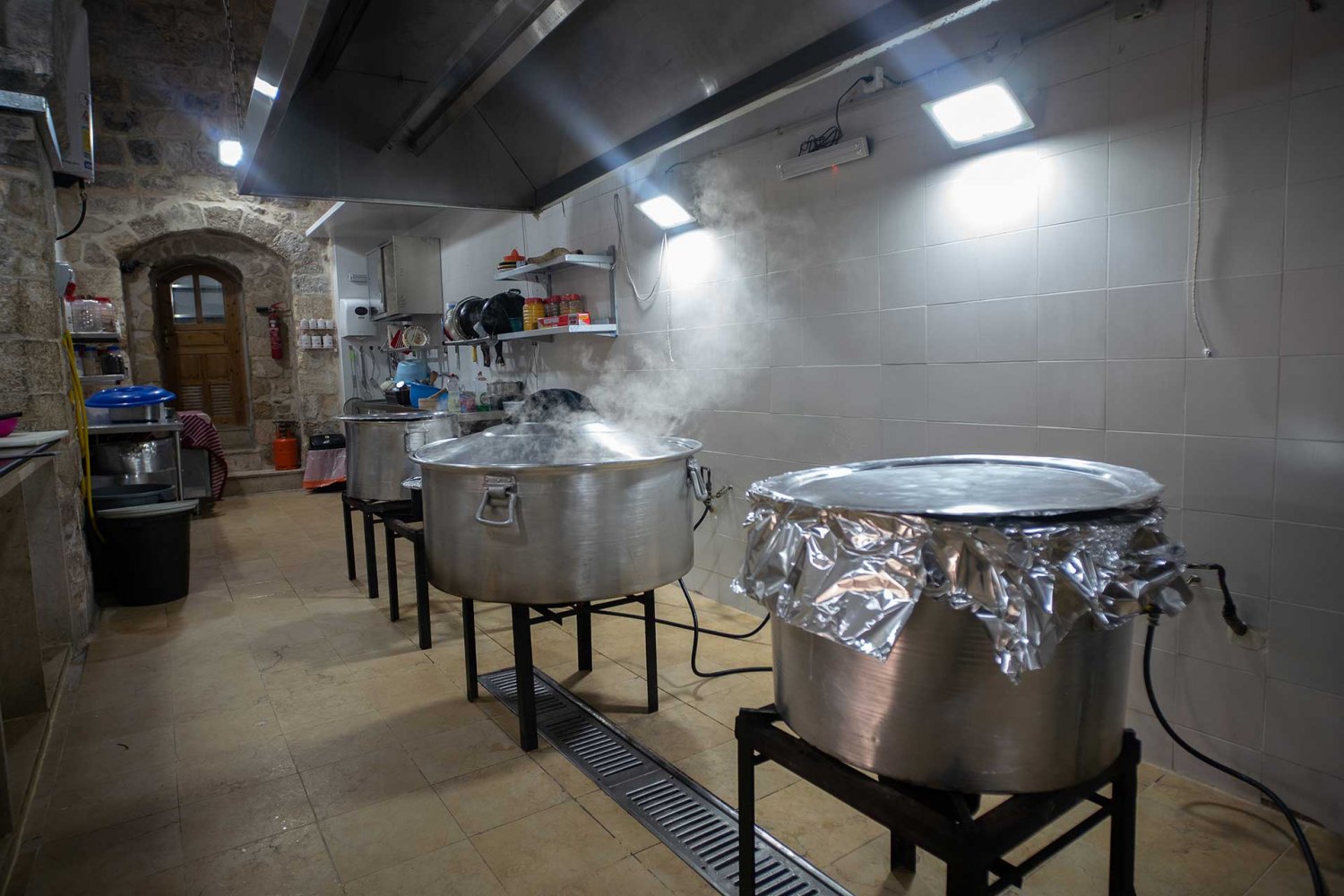
Credit:
Muath al-Khatib for Jerusalem Story
As It Has for Centuries, Takiyya Khaski Sultan Ensures No Family Goes Hungry during Ramadan
Bassam is committed to making sure that all preparations have been made and that the food will be ready for families who wait patiently every day, especially during the holy month of Ramadan, when Muslims fast from dawn to dusk, abstaining from all food and drink, including water.
When the moment arrives to break the daily fast, as determined by the darkness of the sky, Bassam wants to be ready. “We provide food to needy families, and we are keen to deliver the food as soon as we hear the sound of the call to prayer coming from al-Aqsa Mosque, which is just meters away. We serve men first and then women, so that crowding does not occur, because we want everyone to get enough to feed their families.”1
Bassam talked about the famous soup, made from cracked wheat with broth and served only on Sundays during the rest of the year, which is served daily during Ramadan.
Bassam loves his work, which he considers part of his faith and a way to get closer to God. He says that serving his community has a lot of rewards: “Since the first days of Ramadan, families have come early to the kitchen doors, waiting for the meals that we prepare. In this place, we can feel and touch the blessing of those who began this effort hundreds of years ago. Their touch and memory fill the air.”
He estimates that the kitchen provides 140 meals a day. The Jerusalem Waqf Council pays the salaries and covers the cost, as it has since the kitchen opened its doors over 500 years ago.
The kitchen was established more than five centuries ago in a beautiful historic Mamluk-era building to feed the needy of Jerusalem’s Old City as well as strangers, guests of the al-Aqsa Mosque, and everyone who knocks on its door. Bassam insists that the kitchen doors are not closed for a single day.
In front of the huge pot stands chef Ramzi Asila, busy stirring the many pieces of meat before adding the jamid mixture (thickened white yogurt). Today’s meal is mansaf, and the delicious smell spreads throughout the building. (Mansaf, a delicious dish served for large crowds, consists of shredded bread at the base of a large platter, topped with rice and meat, and covered in the yogurt sauce.) Bassam says there is enough food for everyone, praise be to God. He adds that there are more poor people in Jerusalem this year than in previous years; economic conditions are bad, and families can’t provide the simplest needs for their children.
As soon as the huge kitchen door is opened, everyone flocks in, some carrying pots, others plastic containers, and all putting their share of food in large bags to hide it from view, before they leave the place, praying to God for the health and longevity of the facility director.
For the kitchen, it’s just another meal served to the public during Ramadan, the month of blessings.
Notes
Bassam Abu Libdeh, interview by the author, March 17, 2024. All subsequent quotes from Abu Libdeh are from this interview.

